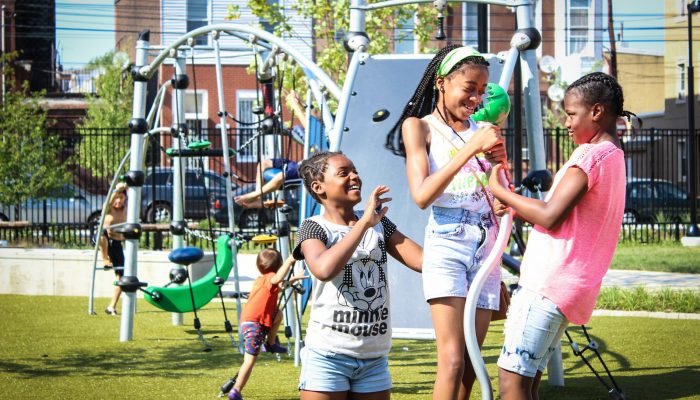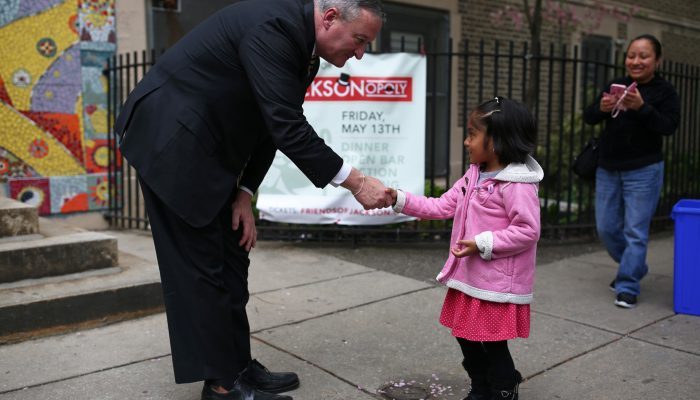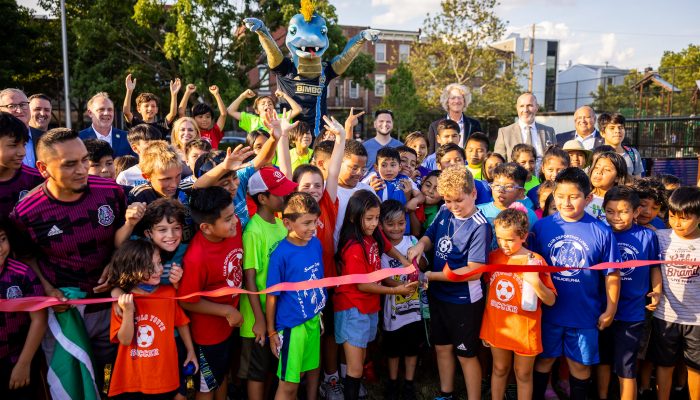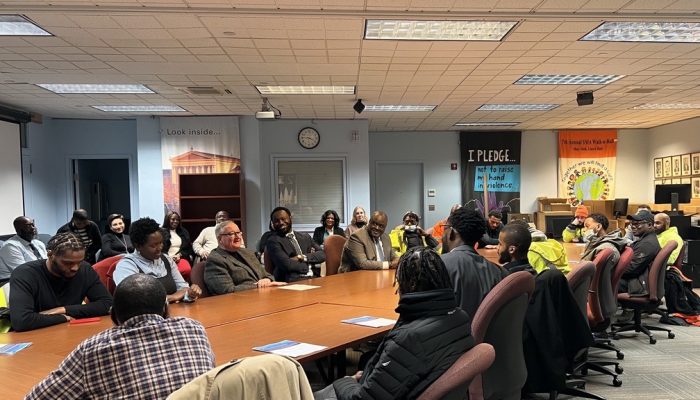In 2016, thousands of child advocates, early education experts, neighborhood leaders, parents, coaches, teachers, doctors, and other Philadelphians supported Mayor Kenney’s vision to invest in Philly’s future through the Philadelphia Beverage Tax (PBT).
City Council worked with Mayor Kenney to pass the tax which builds equity in neighborhoods by focusing on programs that improve education, health, and quality-of-life. It offers a much needed lifeline to struggling neighborhoods and communities.
But, the beverage industry challenged the legality of the tax with a lawsuit, which drew out for two years, forcing the City to put program expansion on hold until the legal opposition was resolved.
In July 2018, the Pennsylvania State Supreme Court ruled in the City’s favor that the tax is legal and constitutional.
What the PBT funds
The tax funds three critical programs:
- PHLpreK, our no-cost quality pre-K program for families in high-need areas.
- Community Schools, neighborhood schools that provide unique programs and services to students, families, and neighbors based upon community needs.
- Rebuild, our multimillion dollar initiative to improve parks, rec centers, playgrounds, and libraries.
In its first year, the Philadelphia Beverage Tax raised $79 million.
The PBT’s early successes
Even during the legal challenge, PHLpreK opened 2000 seats in over 80 pre-K programs, most of which are minority and women-owned businesses.
Since January 2017, PHLPreK has served 2700 children and is currently enrolling an additional 1200 kids to start in September 2018. The program has created 250 living wage jobs at the pre-K programs. PHLpreK has also strengthened participating providers through professional development for teachers and program administrators as well as brought classroom enhancements like libraries and musical instruments.
Twelve public schools became Community Schools serving over 6,500 children and their families. Community Schools have distributed over 73,000 pounds of food and 5,000 clothing items and basic necessities, created new employment opportunities for 90 residents, and connected 267 students to internships and career readiness programs.
Rebuild made its plans for becoming a reality. In May 2018, the City began announcing the first rec center sites to receive improvements through our existing capital budget as part of an initial design of Rebuild
We wanted to be sure the tax would be permanent before we expanded further, so we set aside PBT funds not spent on programs and earmarked it for future program use.
Full steam ahead
Now that the legal challenge is over, we can move forward with full program implementation.
This means that we are making the dreams talked about in 2016 a reality in an even bigger way than we already have.
With PHLpreK, this means that instead of just 2000 seats, we’ll eventually have 5500 3- and 4-year-olds in locally-funded quality pre-K programs all across the city
With Community Schools, this means that we’ll eventually create with the School District of Philadelphia to create 20 located throughout the city based upon the most urgent needs.
With Rebuild, this means that the City will move forward and improve parks, playgrounds, libraries, and rec centers throughout Philly. Since Rebuild will cost hundreds of millions of dollars, the City will issue bonds to fund the program. The debt service on the bonds will be paid by PBT funds.
We’ve also already named the first 64 sites slated for improvements under Rebuild.




